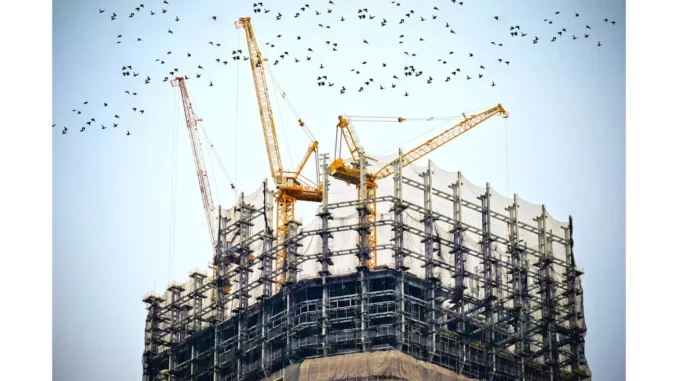
When I first sat down with Michael Turner, a seasoned project manager with over two decades of experience in the construction industry, I knew this conversation would be insightful. Michael has been at the helm of numerous high-profile projects, steering them from inception through to successful completion. His experience with the delivery and construction phase of projects, particularly in the realm of commercial and contract team structuring, is nothing short of impressive.
Focus360 Energy: property compliance services – pre-planning to post-construction. Learn more.
As we settled into our discussion, Michael’s passion for his work was immediately evident. He began recounting his latest project, a sprawling commercial complex that required meticulous planning, coordination, and execution. “With our guidance, you will receive functional advice tailored to the development of a robust commercial and contract team structure,” he quoted, reflecting on the essence of his collaborative approach.
Michael explained that one of the most critical aspects of a successful project is the establishment of a strong commercial and contract team. “It’s not just about having skilled individuals,” he said, “but about creating a cohesive unit where every member understands their role and how it fits into the larger picture.”
He elaborated on how his team initially approached the project by conducting a thorough assessment of the existing team structure. “We needed to identify strengths and weaknesses,” Michael noted. “This involved a lot of one-on-one sessions and team meetings to get a clear picture of where we stood.”
Once the assessment was complete, the real work began. Michael’s team provided tailored advice to address specific gaps and areas of improvement. “One of the key pieces of advice we offer is about role clarity,” he explained. “Everyone on the team needs to know exactly what they’re responsible for and who they can turn to for support.”
Michael recounted a particular challenge they faced with the procurement process. “Supply chain management can be incredibly complex,” he said with a sigh. “But with a well-structured team, we can navigate these challenges more effectively.”
He described how they streamlined the procurement process by assigning specific roles and responsibilities to team members, which eliminated confusion and enhanced efficiency. “It’s about creating a seamless flow of information and tasks,” he said. “When everyone knows their part, the whole process becomes much smoother.”
Another significant aspect of their approach is clear communication channels. Michael stressed the importance of regular updates and check-ins. “We set up weekly meetings to discuss progress, address any issues, and adjust our strategies as needed,” he said. “These meetings are crucial for keeping everyone on the same page and ensuring that we’re all working towards the same goals.”
Michael also highlighted the importance of adaptability in managing construction projects. “No project ever goes exactly as planned,” he admitted with a chuckle. “There are always unexpected challenges or changes. The key is to be flexible and ready to pivot when necessary.”
He shared an instance where they had to adapt quickly due to a sudden change in the client’s requirements. “It was a significant change that affected the entire project timeline,” Michael recalled. “But because we had a strong team structure and clear communication channels, we were able to adjust our plans and keep the project on track.”
Throughout our conversation, it became clear that Michael’s approach is rooted in a deep understanding of both the technical and human elements of project management. “You can have the best plans and the most advanced tools, but without a strong team and clear communication, it’s all for naught,” he said.
As our discussion drew to a close, Michael offered some advice for those embarking on similar projects. “Invest time in building a strong commercial and contract team,” he urged. “It’s an upfront investment that pays off in the long run. And remember, clear communication and adaptability are your best allies in navigating the complexities of construction projects.”
Reflecting on this conversation, it’s evident that the journey through the delivery and construction phase of a project is filled with challenges and opportunities. With expert guidance and a well-structured team, these challenges can be transformed into stepping stones towards successful project completion.
Kenneth George


Be the first to comment